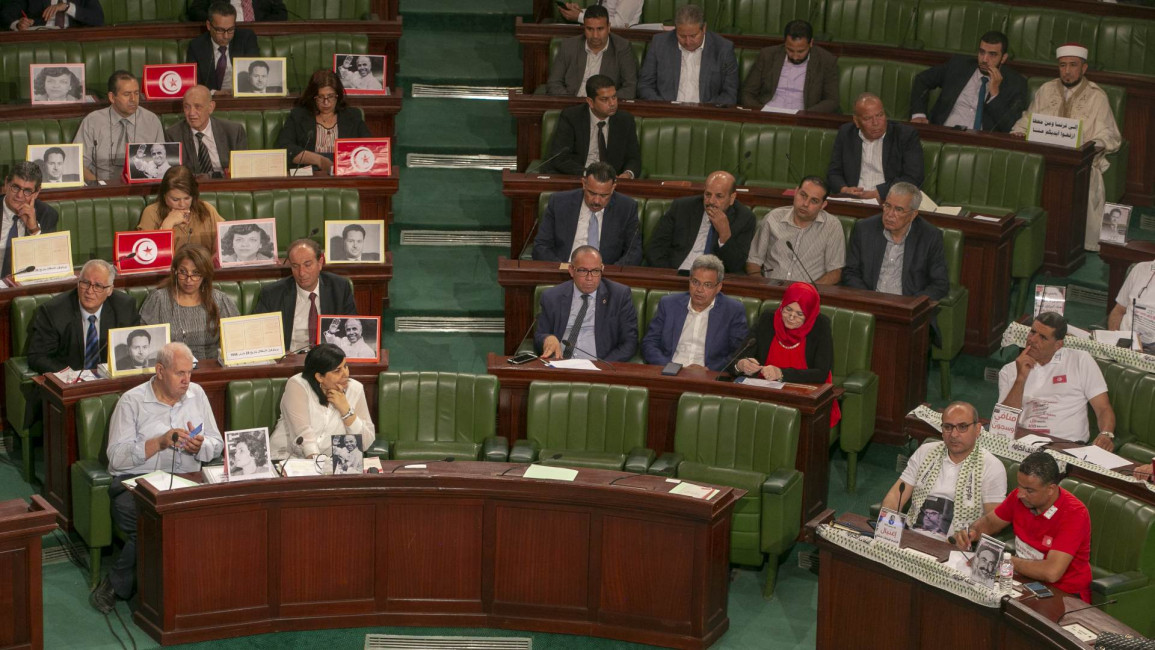Tunisia's parliament rejects motion demanding France apologise for colonial-era crimes
Tunisia's parliament on Wednesday rejected a motion calling on France to apologise for crimes committed during and after colonial rule, following 15 hours of debate that ran into the night.
The motion had been put forward by the small opposition Islamist party Al-Karama, which holds 19 of the 217 seats in parliament.
The party's lawmakers attended the session wearing T-shirts bearing the slogan: "Murder and torture, the brutality of French colonialism".
Only 77 votes were cast in favour of the motion, far short of the 109 votes needed for it to pass - a tall order, given the deep divisions among lawmakers.
The motion called on France to apologise for "assassinations... rapes... the pillaging of natural resources" and an alleged list of "other crimes committed since 1881".
"We are not animated by any bitterness or hatred, but such apologies will heal the wounds of the past," Seifeddine Makhlouf, president of Al-Karama, said, referencing Germany's apology to France after the Nazi occupation.
The motion also included France's support for former president Zine El Abidine Ben Ali as a crime.
Opponents of the motion said it would harm the already faltering Tunisian economy, as France is one of the counry's key trading partners.
Twitter Post
|
Tunisia was a French protectorate from 1881 until it gained independence in 1956.
A year later, it was declared a republic with Habib Bourguiba as its president.
He was overthrown in a bloodless coup in 1987 following allegations that he had become senile, and after doctors declared he was unfit to rule.
Then prime minister Ben Ali was appointed president, a post he held until he was ousted in the country's 2010-2011 uprising.
The uprising was the trigger for similar revolts that toppled autocratic leaders across the region in a wave of protest dubbed the Arab Spring.
The objects of significant historical value were taken out of the country without authorisation during the coronavirus lockdown in March, and are private property belonging to Mohsen Jalouli, the grandson of Habib Jalouli (1857-1957), former minister of justice of the Bey of Tunis.


![Minnesota Tim Walz is working to court Muslim voters. [Getty]](/sites/default/files/styles/image_684x385/public/2169747529.jpeg?h=a5f2f23a&itok=b63Wif2V)




![Debris near Rafic Hariri International Airport [Getty]](/sites/default/files/styles/image_330x185/public/2176162423.jpeg?h=a5f2f23a&itok=MCSK9mkM)
![An Israeli air strike on Jabalia killed teenage journalist Hassan Hamad [Screengrab/X]](/sites/default/files/styles/image_330x185/public/2024-10/hassan%20hamad1.jpg?h=c12e0b96&itok=Rd_dyCVp)
